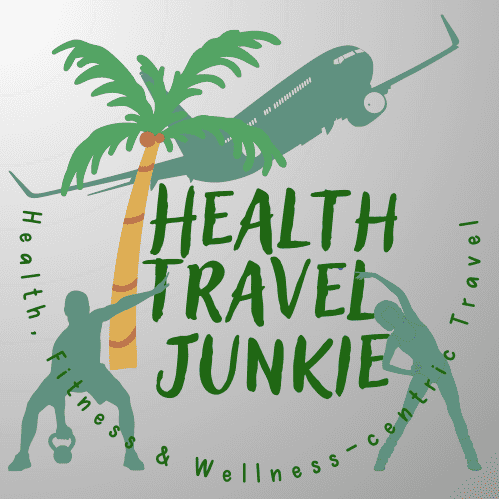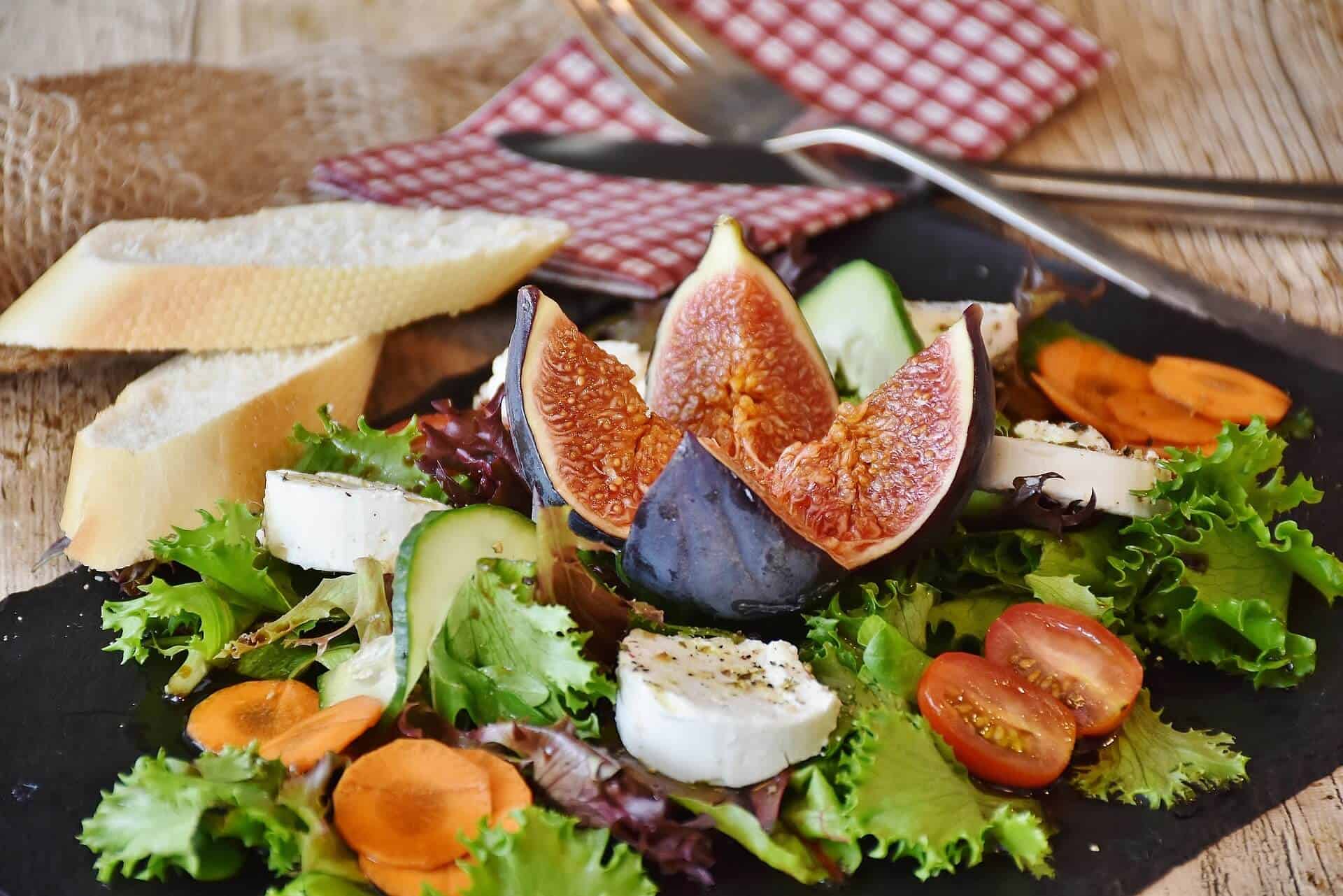Eating healthy is sometimes the last thing on your mind while you’re on the road. You live out of a suitcase. You don’t have access to your state-of-the-art culinary appliances like you do back home. Plus, some destinations can be quite expensive. Forcing you to dig deeper into your pockets to get your basic vitamin needs met for that day. We’ve already covered meeting your hydration needs. Thus, this article’s focus will instead be on eating healthy while traveling.
Contents
- 1 Avoid Junk Food Restaurants
- 2 Avoid 75% (Or More) Of Your Hotel Breakfast
- 3 Prepare Your Own Meals
- 4 Eat At Healthy Restaurants
- 5 Be Careful What You Snack On
- 6 Go To Food Markets
- 7 Avoid Eating Dessert
- 8 If Necessary Avoid Airplane Food
- 9 Get A Quality Supplement
- 10 Conclusion: Eating Healthy While Traveling
Avoid Junk Food Restaurants
Although the temptation is always there to grab a quick stomach-filling meal at the closest takeaway restaurant, for the wellness traveler this should never be a consideration. Spare yourself the artery-clogging saturated fat from fast food restaurants. Traveling is for relaxing, de-stressing, and detoxifying. Thus ensure this is your philosophy with your food choices as well.
The more processed your food is, the less nutritional benefits it contains. Fast food restaurants always try to cut costs. Bad news for food nutrition.
Avoid 75% (Or More) Of Your Hotel Breakfast
For example, avoid any bread products made with white flour. White bread is stripped of its nutrients through refining. It doesn’t make sense to eat a nutritionally inferior product that doesn’t taste any better than wholewheat bread. One of the reasons the western diet often leads to medical problems is because we throw out the healthy part of our food, such as the bran from the wheat kernel or rice. This leaves us with a nutritionally empty meal. Consider buying wholegrain bread at the local supermarket and bring it along to your hotel breakfast table. One step further: bring a fresh ripe avocado along as well.
Moreover, avoid processed meat like bacon or pork sausages. These are common at hotel breakfasts but the price you pay is the increased health risk of e.g. cancer.
Prepare Your Own Meals
To make your own healthy meals, pick accommodation with kitchen facilities. These are easy to find on Airbnb. Then go to the local supermarket, buy your meat or meat-replacement products, along with vegetables. And prepare a nutritious meal.
If you’re traveling in a group, you can split healthy cooking duties between each-other on different nights. You don’t need a lot of spices. There’s no competition to be the world’s greatest chef while you’re on the road. However, most accommodations will provide salt, pepper, some herbs and cooking oils along with the kitchen facilities. Otherwise, carry a small sea salt and black pepper grinder in your luggage. Plus, a miniature bottle of extra virgin olive oil in your backpack can be extremely handy.
Eat At Healthy Restaurants
HappyCow is the leading app to help you discover healthy restaurants in the city you visit. It’ll help you choose a vegan, vegetarian or flexitarian restaurant near your cellular GPS location. Also, search for “vegan/vegetarian restaurants” on google maps. The ratings on these apps are usually fairly accurate. Otherwise look up the city in one of the Health Travel Junkie guides (or suggest a city you’d like to be reviewed in the comment section below).
Be careful of the occasional junk food restaurants masquerading as vegan restaurants. Vegan junkfood is no better than meat junkfood. Plus, be sure that healthy fats such as avocado, nuts and olive oil form a part of your diet. Furthermore, experiment with local healthier foods such as Ceviche or Quinoa salad in Peru, Kefir in Eastern Europe, the Mediterranean diet in Greece, Vegan food in Israel, Sushi in Japan or Kimchi in Korea.
In addition, avoid anything that’s deep-fried. No matter how much you’d want to fool yourself, deep-frying is always unhealthy, whether it’s potato chips, sweet potato, meat, or onion rings.
You need to disconnect the good feelings you get from eating deep fried foods, from the foods itself. Then replace these feelings with a love for working out or eating healthier instead.
Be Careful What You Snack On
Avoid refined ingredients. Always check the ingredient list and don’t purchase anything with MSG, flavor enhancers, or other artificial additives. Natural ingredients trump any chemicals. For example, snacks containing Sea Salt are a much better option than anything seasoned with table salt.
A good vegan snacking option is carrots and hummus. Plus, bring nuts with you prepackaged from home, if necessary. In some cities, these healthy-fat powerhouses can be hair-ragingly expensive. Wherever you go, you’ll find unique health-centric snacks, such as dark chocolate, chestnuts or pine nuts, smoothies and whole-grain breads.
Go To Food Markets
Here you can find local fruits and vegetables to sample and curb your appetite. As well as creative ideas for healthy recipes. Food markets usually offer specialty products that you don’t find at grocery stores, such as meals made with olive oil and sea salt as opposed to iodated sodium-chloride and heavily processed cheap vegetable oils. Similarly, you’ll find fresh olives directly from the farm as opposed to supermarket olives that have been processed in a factory to have a very long shelf-life.
As a snack, you should always have fresh fruit with you while you are traveling. This can be banana, granadilla, mango, dragon fruit, grapes or pretty much any other fruit you can get your hands on.
Avoid Eating Dessert
If you eat a nutritious meal you don’t need to spend extra money on dessert. Eating nutritionally empty food usually keeps you feeling hungry, thus you’re more likely to also want to get dessert. Rather save the money for healthy snacks instead.
If Necessary Avoid Airplane Food
You can easily change your meal options before a flight. But if it comes down to eating white buns and nutritionally empty food, unhealthy sandwiches, and sweet desserts, then you’re better off simply packing in some granola, nuts and raisins to snack on during your flight instead. Also, notice how your body responds to airplane food to decide if it’s worth it. Otherwise simply signal the air stewardess to keep on moving.
Get A Quality Supplement
Yes, there are a lot of supplement scams, and the food you eat should be your main source of nutrition. But when on the road you can make a few exceptions and try a quality wholefood supplement. Note that we are not recommending heavily processed vitamin pills e.g. iron taken from a mine, ground up, and presented to you in a form that your body may not even be able to assimilate.
Instead, if you can find compressed wheatgrass capsules, where the main ingredient is 100% wheatgrass, then it seems like a pretty good deal. It’s all natural so what you see is what you get. Maybe not enough for your RDA (Recommended Daily Allowance), but every little bit helps.
More suggestions:
- Spirulina tablets
- Chlorella
- Hemp Seeds
Conclusion: Eating Healthy While Traveling
To eat healthy while traveling, plan out your meals each Sunday for the week ahead. If you’re feeling too financially constrained to eat better, work on a travel budget to eliminate unnecessary expenses.
You are what you eat.
A proactive, healthier diet may be costly. But illnesses related to bad diet can cost even more, further down the road.
What’s your thoughts on eating healthy while traveling? Any tips for other travelers? Comment below!


Daniel, this is a great post! Seven months on the road now, we have also come to the conclusion that although eating healthy is not always easy, it is definitely worth the effort. I really like your recommendations without any comments except for number 7 🙂 being foodies, trying out local desserts is part of the cultural exploration 🙂 So, I’d probably say, “don’t exaggerate with desserts” instead of not eating any at all 😀
Thanks for the comment! I can be strict when it comes to eating healthy, which is why I cut desserts out 90% of the time. If I wasn’t this way, I would probably never have started this blog. But I completely understand that most regular food-lovers would want to try out all the local desserts. Yes, not exaggerating with desserts is great advice. A few bites here and there would not hurt anyone, and it’ll give you some energy for the traveling.